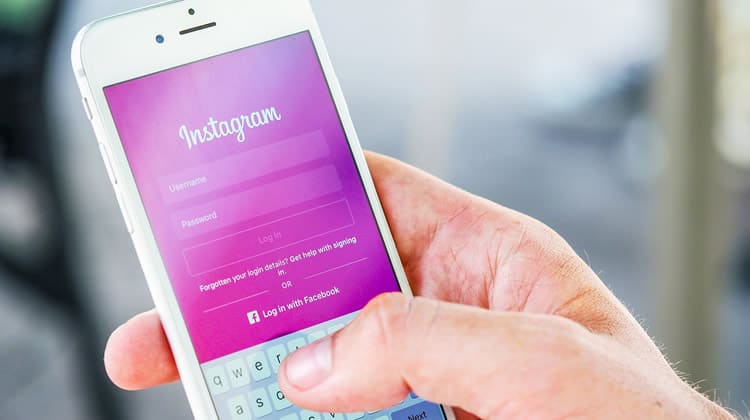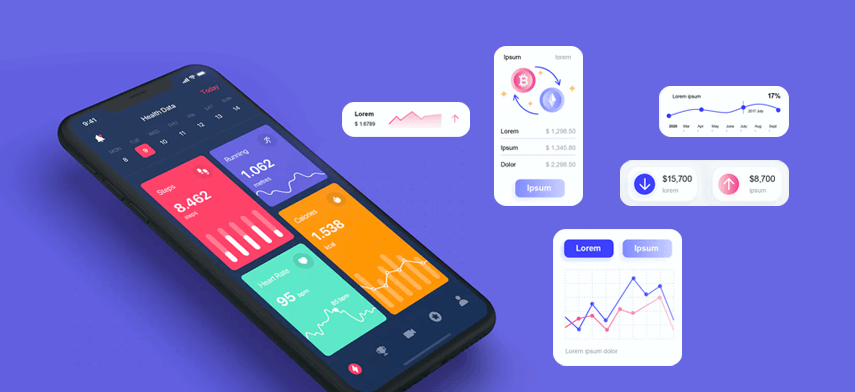If you’re developing a mobile app, you most likely know what it is and why you should develop one for your company. But, do you really understand what a successful mobile app should look like? While the specifics of each project may differ, having the right features will increase the likelihood that your app will succeed.
In this blog post, we’ll cover essential features that every successful mobile app should have. We’ll also provide examples of apps with these features to get you inspired and ready to build your own mobile app.
A successful app must have…
Whether you’re building an app for your business or an app for your personal use, it must have the right features. Successful mobile apps must have the ability to solve business problems and provide a clear value proposition to users. For example, a restaurant app may solve problems such as managing reservations, managing food orders, and providing financial reports. It’s one of the most Essential Features of your mobile App.
A personal use app like a fitness tracker app may solve problems such as motivating people to get in shape, staying motivated, and tracking progress towards goals. A successful app must have a value proposition that solves user problems and provides value to users. The better you understand your users’ problems, the more likely your app will be successful.
A clear value proposition
Successful apps must have a clear value proposition. We define a value proposition as the reason your app exists and does what it does. A value proposition should be simple and concise. It should be written for the app user, not for investors or your company.
A clear value proposition also ensures that your app solves user problems. It should also be relevant to your users. If your users aren’t interested in the app, its value proposition won’t matter. It’s one of the most Essential Features of your mobile App.
User authentication and account management
In order to use your app, users must log in. A successful app must offer a variety of login methods to accommodate various users and device types. Additionally, app user accounts must be managed. A successful app must support logging in, logging out, and managing users’ accounts.

When a user logs into an app, they must be able to access their data. When users log out, they must be able to log out of all associated app accounts, such as social media, email, and shopping accounts.
Interactive, responsive design
Successful apps must have a responsive design that responds well to touch, gestures, and mouse/trackpad navigation. A responsive design maximizes device efficiency and allows users to navigate and interact with your app quickly and efficiently.
Successful apps must have a responsive design that maximizes device efficiency by responding well to touch, gestures, and mouse/trackpad navigation. A responsive design allows users to navigate and interact with your app quickly and Essential Feature on a variety of devices. It’s one of the most Essential Features of your mobile App.
Native-like user interface for maximum efficiency and retention
Native-like user interface refers to the design of your app and the way it looks on both Android and iOS devices. A successful app must have a native-like user interface that mimics iOS and Android device designs. A native-like user interface ensures maximum efficiency and retention by using similar visual elements, animations, and themes across both platforms.
Native-like user interface is important for both user experience and retention. Native-like user interface ensures that users are able to navigate and interact with your app quickly and efficiently. It also ensures that your app is recognizable across both platforms, which improves retention.
Co-branded/custom app for your business’s brand awareness and usage
A successful app must be able to stand on its own as a standalone app. However, it must also integrate seamlessly with your business’ other marketing channels, such as email campaigns and websites. A successful app must have the ability to integrate with your business’ other marketing channels, such as email campaigns and websites.
Co-branded/custom apps are useful for businesses that want to increase brand awareness and usage by offering a specialized app. Co-branded apps allow businesses to build a branded app and promote it as a tool for business users.
Data binding and synchronization between native platforms
As your mobile app matures, you’ll likely want to expand its functionality and add more features. To maintain a successful app, you’ll want to add new functionality and features gradually over time. To expand functionality and add new features, you’ll want to add new data models and view models to your app’s model and view layer.

To modify your app’s functionality and add new features, you’ll want to modify the data model and modify the view layer. To add new functionality, you’ll want to synchronize data between your app and your backend API. You’ll also want to synchronize data between your app and other native platforms, such as your Android and iOS apps. It’s one of the most Essential Features of your mobile App.
Real-Time Data
Real-time data is data that can be used while users are in the app. This can be used to create useful user experiences and provide more relevant information to your users. Real-time data can be used to show users helpful information like weather or flight information when they are using the application.
It can also be used to create a more interactive user experience by showing users information like the current location. If you’re developing an app that’s designed to help someone find a place, you can use real-time data to show them where they are and where they need to go.
Rich Media
The era of the app is over and the era of the rich experience is here. The ability to create a high-quality app with rich media designed to deliver an incredible user experience has never been easier. This can allow you to create an amazing app experience by adding photos, videos, audio, maps and more to your app.
User Profile
A user profile is where you can keep track of the information about your users. You can create a user profile that keeps track of information like the user’s email address, first name, last name, country and more. You can also create a user profile that keeps track of information about the user’s app usage.
This will allow you to keep track of data like the number of times a user has opened your app, their location when they used your app and more.
Notifications
Mobile notifications are an important part of the user experience. The ability to create customized notifications that are sent to users at the right time can make all the difference in an app’s success. Mobile notifications are an important part of the user experience.
They can be used to let users know when something important happens in your app. This can be used to notify users when they receive a notification that they’re waiting. This can be used to help keep users engaged with your app. It’s one of the most Essential Features of your mobile App.
Analytics
Mobile apps are becoming more and more important in business. However, they are often underutilized. One of the best ways to make sure that your app is used is to get an understanding of how your users are behaving.

You can use analytics to keep track of information like how many times a user has opened your app when they opened your app, what pages they visited and more. With this information, you can see what parts of your app are working and figure out what you need to improve. It’s one of the most Essential Features of your mobile App.
Conclusion
The right features in a successful mobile app will increase the likelihood that your app will succeed. A successful mobile app has a clear value proposition, user authentication and account management, a native-like user interface, a custom/co-branded app for your business’s brand awareness and usage, a native-like user interface, data binding and synchronization between native platforms, and a gradual expansion of functionality.



















